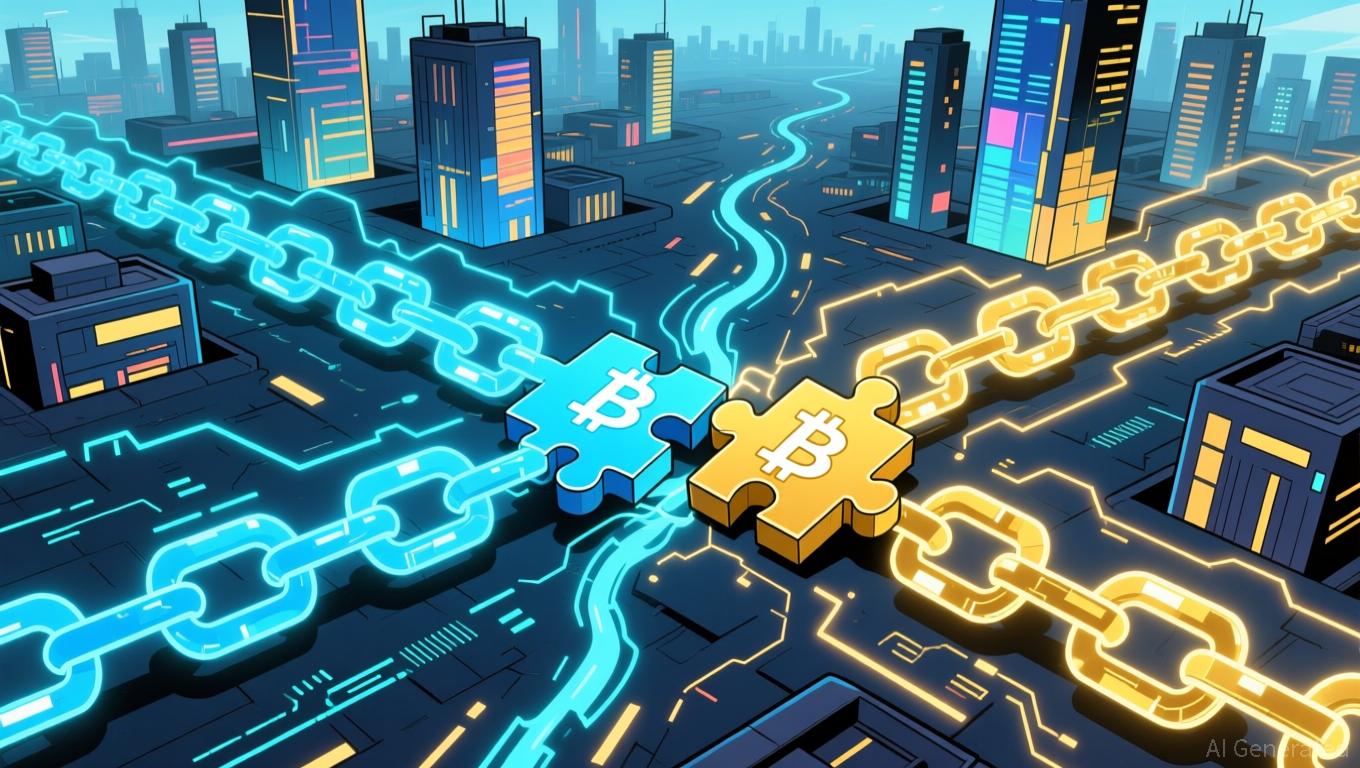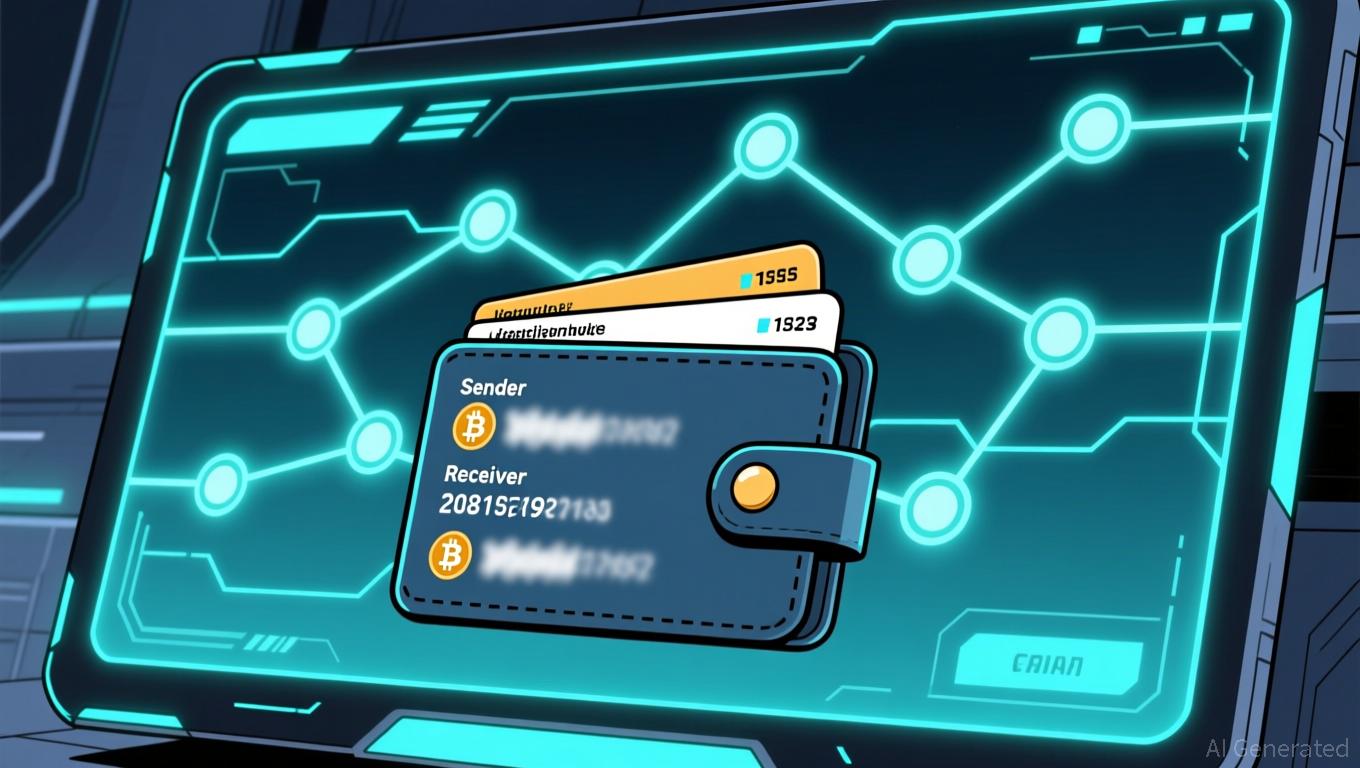Cardano News Today: Cardano's Chain Split Sparks Debate Over PoS Resilience
- Cardano (ADA) faces a critical chain split on Nov. 21, exposing PoS vulnerabilities and disrupting exchanges like Coinbase for 14 hours. - Co-founder Charles Hoskinson blamed a disgruntled stake-pool operator, with FBI involvement, while emphasizing natural consensus restored network unity. - ADA's price fell to $0.39 from $0.47, trading below Ichimoku Cloud with bearish indicators (CMO -75.33) and key resistance at $0.75. - Despite 9.6% social dominance, weak altcoin season and Bitcoin dominance limit A
Cardano (ADA) is at a pivotal point as it attempts to regain its $1 liquidity area, a milestone that could either restore investor optimism or lead to further price consolidation. The asset has recently experienced heightened volatility, largely due to a notable chain split on Nov. 21, which has kept ADA trading within a narrow band. Bulls must overcome significant resistance to restore upward momentum. This disruption was caused by a purposely constructed transaction that took advantage of a long-standing vulnerability in the node software,
Although the chain split was resolved quickly, it

The Chande Momentum Oscillator (CMO) also signals a bearish outlook,
For ADA to challenge the $1 liquidity mark, it first needs to clear the $0.75 barrier and maintain levels above the cloud. A decisive breakout could bring in institutional investors and renew interest in Cardano’s ecosystem, especially as on-chain activity and social engagement remain high.
As the cryptocurrency market looks for direction amid macroeconomic uncertainties—such as Federal Reserve actions and inflation reports—Cardano’s future will depend on its ability to combine technical strength with community support. For now, the $0.75 level is the key battleground for bulls, and its outcome will be crucial for ADA’s trajectory in the months ahead.
Disclaimer: The content of this article solely reflects the author's opinion and does not represent the platform in any capacity. This article is not intended to serve as a reference for making investment decisions.
You may also like
Bitcoin Updates: IMF Warns of Widespread Risks Amid Growing Popularity of Tokenized Finance
- IMF highlights tokenized finance's efficiency gains but warns of systemic risks like smart contract interdependencies and liquidity vulnerabilities. - Upcoming Chainlink ETFs signal growing institutional adoption, with Grayscale and Bitwise advancing regulated exposure to $100B+ oracle network assets. - Analysts predict over 100 new crypto ETFs in six months, but XRP's 18% price drop underscores market volatility despite regulatory approvals. - IMF anticipates regulatory frameworks to address cross-platf

South Korea's Revamped AML Framework: Is It Possible to Balance Security with Innovation?
- South Korea's FSC overhauls AML rules to tighten crypto transaction oversight, targeting transfers under $680 and expanding pre-emptive freezes. - The crackdown follows Upbit's $30M hack linked to North Korea, prompting tax authority raids and blockchain tracking for evasion cases. - AI-powered monitoring flagged 200 suspicious accounts in 2 months, balancing automation with manual audits to detect illicit patterns. - Global enforcement remains fragmented as South Korea pushes stricter VASP registration,

"Privacy or Compliance: The Trust Challenge for Crypto in Payments and DeFi"
- Economist Saifedean Ammous critiques crypto privacy tools like Houdini Pay, arguing centralized compliance models undermine true cryptographic anonymity. - Houdini Pay's "compliant privacy" retains metadata (wallets, IPs) despite hiding onchain addresses, contrasting with zero-knowledge solutions like zkBob. - Balancer's $116M 2025 hack exposed vulnerabilities in audited DeFi protocols, highlighting risks in complex financial primitives like stable pools. - The crypto industry faces a trust dilemma: bala
